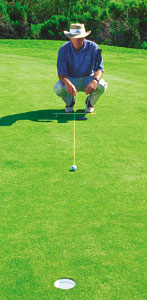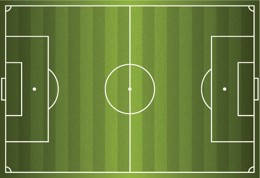softball, tag-up force out
Question
QUESTION: I have read the ASA rules and I can't find a direct answer to this question. Can you direct me to the rule?
There was a base runner on first. The batter hit a fly to right field. The base runner left first on the hit. The fly was caught and the right fielder threw to first before the base runner returned to tag up. No tag was made. A double play was called ending the inning. Why was this a force out?
ANSWER: Hi Thomas,
You can't find the rule on this under force out because (I know it kind of looks like one to non-umpires) it is not a force out but in this case in umpire-talk it is a live ball appeal of a base left too soon and thus a timing play.
8-7-f and POE 1-k is what you're looking for.
Mark
---------- FOLLOW-UP ----------
QUESTION: Can you please clarify the live ball appeal? Why would the umpire call the out before she even reached the base?When the runner returned to base without being tagged, was she supposed to appeal to the umpire that she really safe?
ANSWER: Hi Thomas
A live ball appeal is an appeal made during a live ball by any fielder in possession of the ball touching the base missed, or the base left too soon on a caught fly ball or by tagging the runner who committed the violation if they are still on the playing field.
As you said "The fly was caught and the right fielder threw to first before the base runner returned to tag up." The runner is now out on the live ball appeal of leaving the base too soon on a caught fly ball. She didn't have to be tagged (although that would also be an out also if she wasn't standing back on the bag she left.)
She can't appeal that she was safe because she wasn't tagged because she doesn't have to be tagged. All that is necessary is for the ball to be controlled by the defensive player in contact with the bag before she returns.
Mark
---------- FOLLOW-UP ----------
QUESTION: If the defensive player just has to control the ball while contacting the base, what is the distinction between a live ball appeal and a force out?
If it is the same thing as a force out, what is the rationale? The batter-runner was out when the ball was caught so there was no force, she was just a runner between bases. Doesn't that normally require a tag in a no force situation?
Answer
Hi Thomas,
You are asking about a live ball appeal of a "base left too early" and what can happen
It's an out but it's not the same thing as a "force out." There is a HUGE difference in the possible results of a live (or dead) ball appeal of a "base left too early" and a force out in softball. On a force out no runs would score if that happened during a play (or on appeal) and was the 3rd out. On a live ball appeal of a "base left too early" runs scored BEFORE the appeal would count even if it was the 3rd out of an inning because it is considered a "timing play".
A force out is where a runner loses the right to the base that the runner is occupying because the batter becomes a batter-runner and before the the b-r or a succeeding runner has been put out (thereby removing the force)
Your runner did not lose their right to the base because the ball was caught and the b-r is out, so therefore they are not "forced" from the base. They just left the base before the fly ball was touched (in this case caught)by a defensive player and that's against the rules.
"she was just a runner between bases." that's correct but she left too early and is liable to be put out if the defensive player, contacting the base w/ control of the ball happens before she can return to the base. This is a basic rule of softball.
"Doesn't that normally require a tag in a no force situation?" No, not in this case, by rule.
Please note there are different live (or dead) ball appeal plays. What you asked was about was a "base left too early." If the runner missed a base and it was appealed (live or dead) and it was a "force play", all results of a "force" would apply to that play.
Let's say r1 on 3rd, r2 on 1st, 2 out and a base hit, r1 scores, r2 goes to 3rd but missed 2nd and b-r is on 1st. Defense appeals (either live or dead ball that r2 missed 2nd. Umpire calls r2 out, the run does NOT score and the inning is over. This is an example of a live (or dead) ball appeal that IS a force out because the runner was forced to 2nd and was called out there because they missed the base.
Mark
legal pitch
Batter obstructing the plate on pitches.


